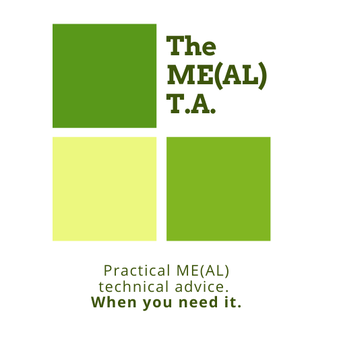ME(AL) Resource List
Scroll down for a list of resources for monitoring, evaluation, accountability and learning. These are guidance notes, websites and training courses I have found helpful throughout my career.
Know of any other good resources? Let me know! |
|
General M&E
Emergency ME(AL)
Mobile Data Collection / Technology / Information Management (IM)
Theory of Change
Evaluation
Quality & Accountability
Data Protection / Responsible Data
- The IFRC's well-known "Project/Program Monitoring & Evaluation Guide" (2011) is available in English, French, Spanish, Russian and Albanian. The "PMER Pocket Guide" (2012) is also a handy quick reference. For further materials, templates, online learning and other tools visit the IFRC M&E webpage.
- CRS is also known for its M&E guidance materials, take a look at their detailed "Chapter 10: Monitoring and Evaluation Guide" (2011) which takes readers through the process of developing an M&E framework, establishing the M&E system and implementing an M&E system. Appendix C contains a nice "cheat-sheet" on writing logframes. I will admit to not having read this whole document, but the Guidance on Monitoring & Evaluation (2013) has also been a helpful reference for me over time, especially Annex C on page 6 "spin the pen" method for sampling. CRS's more recent "Monitoring for Problem Solving, Adaptive Management, Reporting and Learning" (2020) is an interesting read on the spectrum of formal/informal, light/rigorous monitoring.
Emergency ME(AL)
- CARE International has an Emergency Toolkit including sections on MEAL covering quality & accountability, information management, monitoring & evaluation, feedback & complaints, PSEA and MEAL for Gender in Emergencies and for CVA.
- ACAPS & ECBP's Humanitarian Needs Assessment - The Good Enough Guide (2014) is a must read, as is the Good Enough Guide for Impact Measurement and Accountability in Emergencies (2007).
Mobile Data Collection / Technology / Information Management (IM)
- The Information Management Resource Portal managed by CartONG and hosted by ALNAP is a fantastic source of information on MEAL, mobile data collection and information management themes, in French and English. I particularly like the Mobile Data Collection Toolkit collaboration with TdH and the 2021 Benchmarking of Mobile Data Collection Solutions in collaboration with WHH.
- For the latest on technology in the ME(AL) field see MERL Tech.
Theory of Change
- The Centre for Theory of Change is a non-profit that promotes quality standards and best practices for theory of change work. I particularly like the ToC examples page, look for the Superwoman example which is a great, practical guide to the ToC process.
- CRS has a "Practical Guidance on Developing a Project's Theory of Change" (2020)
Evaluation
- The Better Evaluation website is full of great resources and articles, written in plain English and broken down into easy to understand concepts and steps.
- MEASURE Evaluation also has a lot of resources, with a specific health focus.
Quality & Accountability
- The Core Humanitarian Standard sets nine standards for organisations and individuals in humanitarian response. There is also an introductory training course for those new to the standards.
- The Sphere Standards are a set of principles and minimum standards for humanitarian response. The standards can be accessed through an online handbook or a mobile app. There is also a Sphere for Monitoring and Evaluation series.
Data Protection / Responsible Data
- The Handbook for Data Protection in Humanitarian Action 2nd Ed should be a mandatory read for all working in ME(AL)! I used the first edition as an analytical framework for my Masters research paper on Shadow IT and Data Protection in the Humanitarian Sector and found it to be a very useful guide.
- MERL Tech has a responsible data resource list.
- The Engine Room publishes research on the role of technology and data in social change.
- Oxfam's Responsible Data Policy and research on Biometrics in the Humanitarian Sector are well known pieces of work.
- The ICRC publishes its data protection guidance, research and policies, including topics such as personal data protection, biometrics, messaging apps, metadata.
Online Learning
ME(AL) Specific
ME(AL) & More
- The MEALDPro suite of resources prepares learners for the PHAP Core MEAL Certification, for those seeking a MEAL credential. As a starting point, there is an abridged and free version available through the Humanitarian Leadership Academy, MEALDPro: Monitoring, Evaluation, Accountability and Learning for Development Professionals.
- I enjoyed taking PM4DEV's Project Design, Monitoring, and Evaluation course.
ME(AL) & More
- DisasterReady has many free online resources for humanitarian and development professionals, including humanitarian MEAL training.
- Kaya is another free learning platform run by the Humanitarian Leadership Academy. There are many course options for monitoring & evaluation, program design, quality & governance, information management & technology, accountability and more.
- Humentum is a global non-profit which focuses on building organisation and individual capabilities, in the areas of compliance, grants, contacts, finance, HR, internal learning and project management. This includes some accountability materials from this perspective.
- As well as the MEAL Certification listed above, PHAP offers credentials in the humanitarian space including cash & voucher assistance and needs assessment. See their credentialing program overview page.
- For online learning on specific technical skills (eg. data analysis, excel, sampling, etc) try an online provider such as Coursera.
Networking, Professional Groups & Blogs
Groups
Blogs
- The Impact Consulting Hub runs a series of specialised networks. I lead the MEL Network, join us for discussion and support on all things ME(A)L.
- The Peregrine Group is an online community for M&E professionals, containing sub-groups for discussion, jobs and events.
- KM4DEV is an online community for Knowledge Management professionals, with a discussion board, website, wiki and journal.
Blogs
- The Monitoring and Evaluation Blog while no longer maintained has some interesting blog entries.
- Monitoring and Evaluation News is a news service for the latest developments in M&E methods for development programs.
Technical Tools
Data Collection
Indicators
Qualitative Data Collection
- I like this online sample size calculator: www.surveysystem.com/sscalc.htm
- The Washington Group on Disability Statistics have a list of Questions Sets that can be incorporated into data collection tools. More resources on this are also available on Humanity & Inclusion's Disability Data in Humanitarian Action webpage.
Indicators
- People in Need manage Indikit which helps identify SMART indicators for relief and development projects.
- The Humanitarian Indicator Registry provides indicators per sector to support the IASC Humanitarian Program Cycle.
- The Core Humanitarian Standard Guidance Notes and Indicators provides guiding questions and performance indicators linked to the standards.
Qualitative Data Collection
- This is a useful Practical Guide to Focus Group Discussions by CRS.
Crisis Information Sources
- ReliefWeb is a key sources of crisis updates, sitreps, and more
- CrisisInSight is ACAPS analytical portfolio of crisis updates
- GDACS offers alerts and updates on disasters, including impacts and the latest media
- Redhum is a Spanish-language platform for information on humanitarian response in Latin America and the Caribbean.
- UNOCHA's Financial Tracking Service tracks humanitarian funding flows.
- Humanitarian Response provides information on humanitarian operations, as well as key templates and guidance for coordination.
- The Humanitarian Data Exchange is a platform to find and share humanitarian data, managed by UNOCHA's Centre for Humdata.








